News & Events
Biofabrication for the eardrum
More News
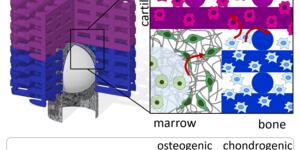
Integrating Biofabrication Technologies
Unlocking the secrets of osteochondral regeneration has long been a daunting challenge, with the intricate interplay between cartilage and bone presenting formidable hurdles. However, a groundbreaking approach is on the horizon, poised to redefine the landscape of tissue regeneration: multiphasic scaffolds – the cornerstone of cutting-edge strategies aimed at mirroring the complexities of the osteochondral unit and nurturing the growth of implanted bone-marrow derived stem cells (BMSCs). Yet, amidst the promise, hurdles remain. Stem cell loss during expansion in vitro and the limited control over their behavior within scaffolds both in vitro and in vivo pose formidable challenges.
Read More

Bioprinting in Space
In a new Pathfinder Open project, PULSE, we have partnered with different experts in space technology and use thereof to study how the Space environment could be working as an accelerator of ageing…
Read More
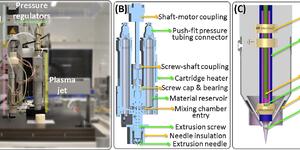
New Hybrid Biofabrication technology
Many tissues in our body display gradients. These are not only biological gradients, but also structural, physical, and chemical ones, resulting in smoother variations of mechanical properties and cell functional activity.
Read More
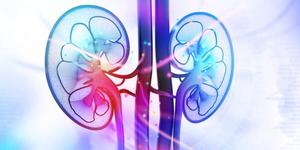
Kidney 3D in vitro models through bioprinting
At the Complex Tissue Regeneration department, we work hard to bridge the gap towards the dream of organs bioprinting. Step by step, we are now progressing towards understanding more and more in depth the requirements to bioprint different kidney cells, either derived from pluripotent stem cells or of adult species.
Read More
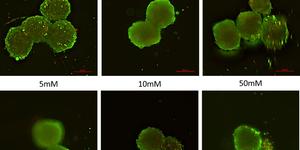
Bioprinting through Levitation
Magnetic levitation offers the possibility to place cells in a precise position in space through controlling the magnetic forces applied to magnetized cells. This new biofabrication technique, at the interface between bioprinting and bioassembly, provides new ways to create large-scale biological constructs that can be used for regenerative medicine purposes.
Read More
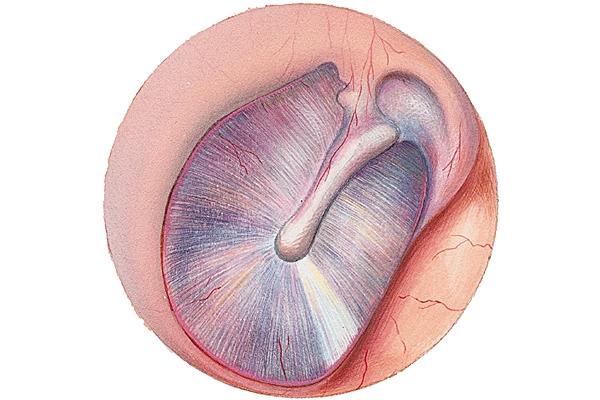
Published on: August 19, 2018
Category: Events
Current approaches used for eardrum repair or replacement show sub-optimal hearing outcomes. 4NanoEARDRM aims at filling an exposed gap in COM treatment by providing biomimetic, reliable and highly performant eardrum devices provided with targeted drug delivery and anti-inflammatory activity, finally enabling in situ tympanic membrane regeneration with optimal acoustics. The 4NanoEARDRM device is conceived to be “4 times” “nano”, as it will have nanofibres supportive for cell repopulation, immunomodulatory nanofibrils, drug-delivery nanoparticles, and nanoscale vibration. At the same time, it will be “for” “Nano”, namely, for enabling exploitable nanotechnologies and nanomedicine products in otologic surgery.
As part of a Euronanomed project, we will be working together with partners from Italy, Germany, and Turkey.






